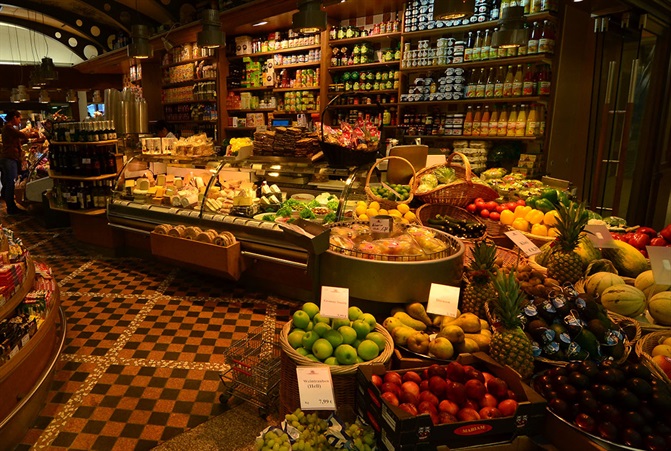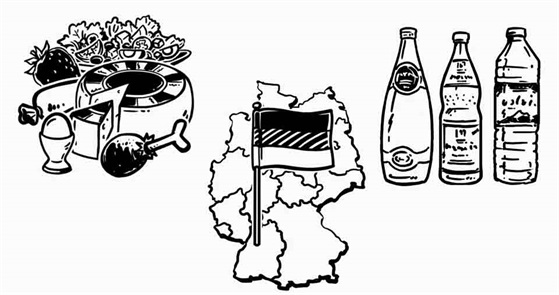🍴
Life in Germany > Food & Drink

©
copyright_ThomasAu_CC BY 2,0
What do Germans eat and drink?
What influence has this on my everyday live?
The traditional German cuisine is very diverse and shaped by the particularities of the regions. Germany is known throughout the world for savory dishes, a good selection of bread and the beer brewing tradition. Due to the variety of cultures that Germany is now home to, the modern kitchen is also very internationally - especially in big cities. In the morning there is traditionally a breakfast of bread and cheese, sausage or jam. Many people also prefer to eat cereal or fruit in the morning. During lunch time Germans usually eat in school or at work either a hot meal or something small like a salad or soup. In the evening most people enjoy a more complex meal, for example meat and vegetables, together with family or friends.
While for lunch and dinner it is not unusual to serve wine or beer it should only be consumed in small amounts (see information under "alcohol and drugs"). Throughout the day, it is customary to drink either hot drinks such as tea or coffee or cold drinks, such as water or Lemonade. Since lemonades contain a lot of sugar, they are quite unhealthy, especially for children. Water is usually sold in bottles. A specialty in Germany is the high quality of drinking water. For this reason, you can drink water from the tap without hesitation.Everyone is free to eat what he likes. There are no rules - except by laws such as the animal protection law.
If you can or don’t want to eat certain things cannot you should pay attention to the following terms in the designations of the products or the list of ingredients:
- “Schweinefleisch” - Pork meat
- “Zucker” – contains sugar
- “Alkohol” – contains alcohol
- “laktosefrei” – without milk
- “Glutenfrei” - Gluten Free
- “Vegetarisch” – without meat
- “Vegan” – without animalproducts including milk and eggs
- “enthält Nüsse” – includes nuts
Phrases
I am hungry.
Ich habe Hunger.
I am fed up.
Ich bin satt.
I am thirsty.
Ich habe Durst.
Can I get something to drink please.
Kann ich bitte etwas zu trinken bekommen?
I would like to drink something.
Ich möchte gern etwas trinken.
I would like to have ...
Ich hätte gern ...
... a cup of coffee/ tea.
... eine Tasse Kaffee/ Tee.
... a glass of sparkling/ natural/ tap water.
... ein Glas Wasser/ Leitungswasser/ Mineralwasser.
I eat / don't eat ...(food).
Ich esse kein/ keine (Nahrungsmittel).
I have a food allergy.
Ich habe eine Lebensmittelallergie.
I am allergic to ...(food).
Ich reagiere allergisch auf (Nahrungsmittel).
I am a vegetarian.
Ich bin Vegetarier.
I prefer to eat ...(food), than ...(food).
Ich esse lieber (Nahrungsmittel), als (Nahrungsmittel.
I would like to cook.
Ich möchte gern kochen.
Do you have baby food?
Haben Sie Babynahrung?
Can I buy baby food/ follow-up milk from you?
Kann ich bei Ihnen für mein Baby Babybrei/ Folgemilch bekommen?

